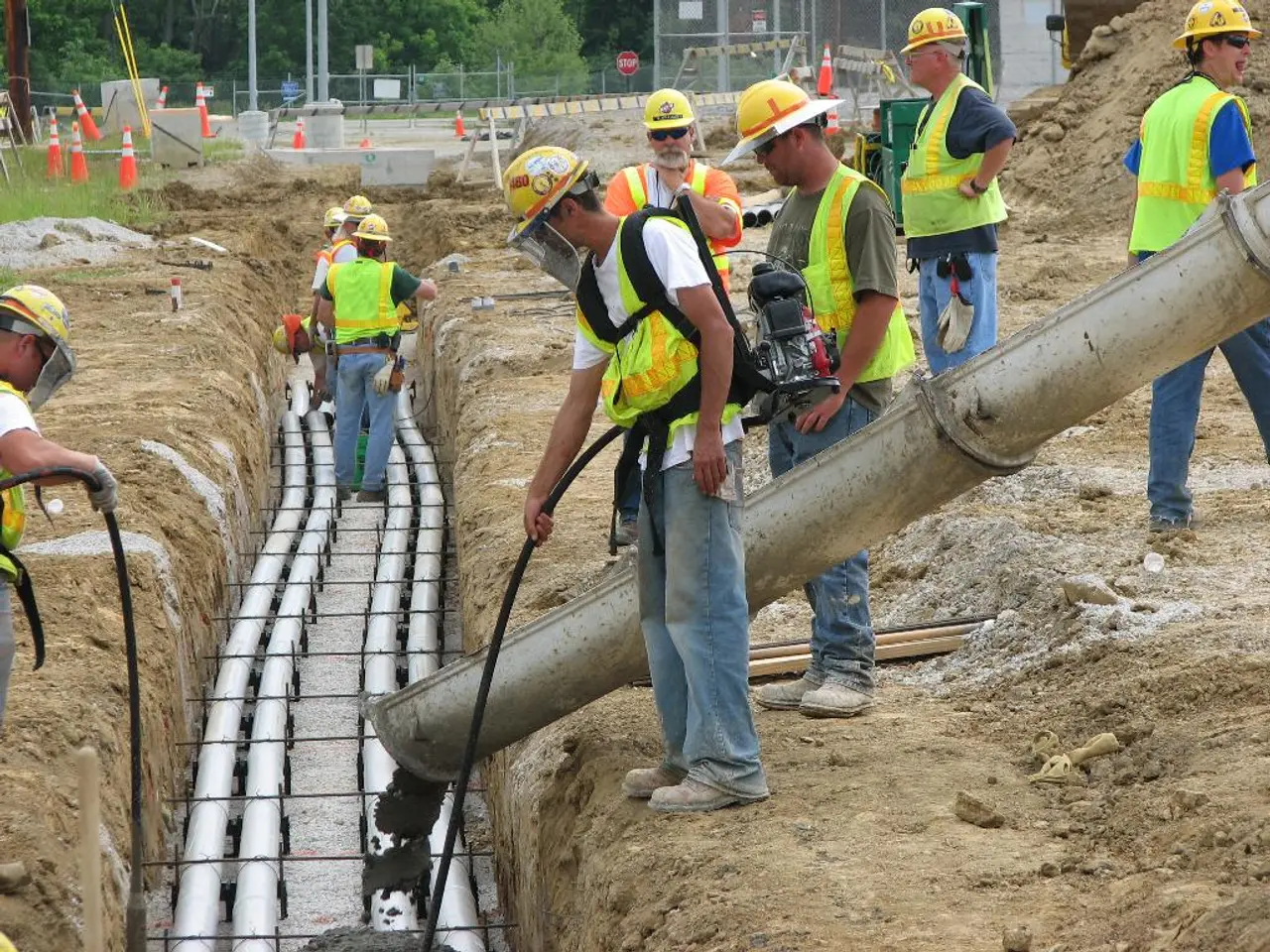CEO of Posco E&C steps down amid consecutive workplace catastrophes
Posco E&C Faces Safety Crisis and Reforms Following Series of Fatal Accidents
South Korea's construction arm, Posco E&C, is grappling with a critical safety crisis in 2025 after a string of fatal workplace accidents. These incidents have resulted in the loss of five lives this year, the latest being a suspected electrocution of a Myanmar national in his 30s[1][3].
In response to these tragedies, President Lee Jae Myung has publicly criticized the company, questioning whether the deaths could be considered "murder through negligence." He has ordered a strict investigation and instructed relevant ministries, such as the Ministry of Land, Infrastructure and Transport and the Ministry of Employment and Labor, to explore all legally possible punishments, including revoking Posco E&C's construction license and banning the company from public bidding[1][2][3].
The CEO of Posco E&C, Jeong Hee-min, has expressed intent to resign and take accountability for these incidents[3]. The company has also temporarily suspended all construction activities nationwide to address safety concerns[3].
Investigations are underway into subcontracting practices at Posco E&C. The Fair Trade Commission (FTC) has launched an on-site investigation, scrutinizing alleged illegal subcontracting and unfair special agreements with subcontractors related to these industrial accidents[4].
The government's crackdown represents a broader shift in South Korea towards imposing heavier legal and financial penalties on large corporations for workplace safety failures, marking an era of increased corporate responsibility and risk for executives[5].
Posco Group has launched a company-wide special safety task force to conduct a comprehensive review of safety protocols and practices across its steel, energy materials, and infrastructure businesses[2]. The goal is to restore public trust and pursue sustainable growth by shifting towards a site-centered, self-regulating safety culture[2].
A tragic accident in Uiryeong, about 300 kilometers south of Seoul, saw a man in his 60s die after becoming trapped in a drilling machine during slope reinforcement work[1]. These incidents serve as a grave warning that demands fundamental reform and thorough reflection on all aspects of Posco E&C's operations[1].
As the investigations continue, it remains to be seen what measures will be taken to ensure the safety of workers at Posco E&C-managed construction sites and prevent future workplace tragedies.
[1] https://www.reuters.com/world/asia-pacific/south-korean-president-orders-probe-into-construction-firm-posco-e-c-2021-09-27/ [2] https://www.bloomberg.com/news/articles/2021-09-27/south-korea-s-posco-e-c-s-safety-crisis-could-cost-it-public-projects [3] https://www.koreatimes.co.kr/www/news/biz/2021/09/276_301595.html [4] https://www.ft.com/content/909e2a44-77a0-4706-9b7c-e02d3a3f673d [5] https://www.reuters.com/world/asia-pacific/south-korea-tightens-safety-rules-after-construction-site-deaths-2021-09-28/
- Despite the broader industry focus on workplace-wellness and health-and-wellness, the finance sector may cautiously watch Posco E&C's ongoing safety crisis, given the potential financial consequences of legal penalties and lost public projects.
- Some experts in the science field might argue that the crime-and-justice industry should consider the implications of negligence in workplace safety cases, as the recent events at Posco E&C could potentially lead to discussions about corporate criminal liability.
- As the general-news media continues to cover the safety crisis at Posco E&C, journalists may invest time in exploring the effects of these incidents on the entire construction industry by examining the related regulations and reforms that may follow.




